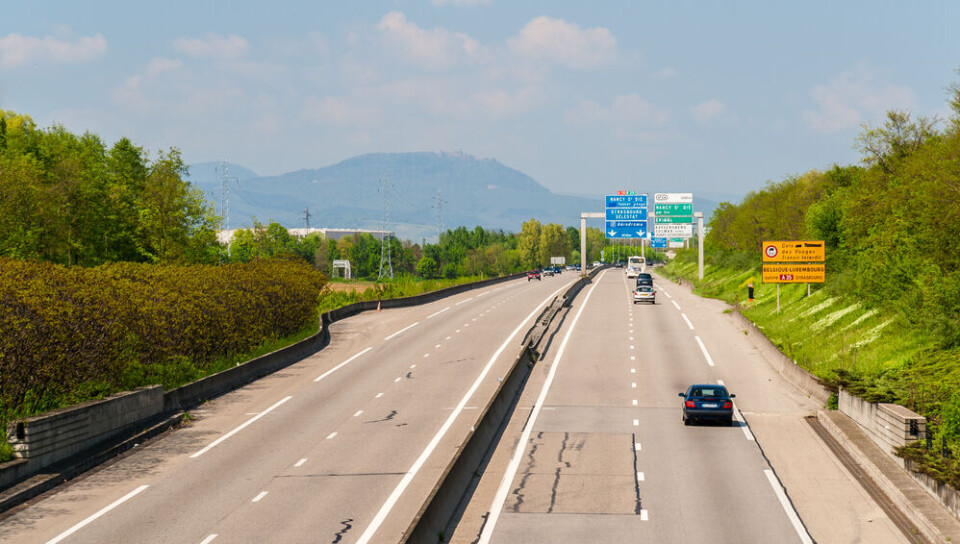-
Map: See how February rainfall compares to average in your French department
More than 30 departments classified as showing ‘extremely high’ levels of rainfall
-
A mayor in France expresses support for British woman expulsed over 'low income'
Briton ordered to leave the country after her small business failed to generate enough income in its first year
-
Pont Neuf in Paris to be transformed into the world’s largest immersive artwork
Visitors will be able to walk through the temporary installation as they cross the Seine
What do middle lane motorway drivers risk in France?
As more than a third of drivers in France tend to linger in the middle, experts share the risks and penalties at stake for the risky practice

More than a third of drivers in France never move into the right-hand lane of the motorway and prefer to linger in the middle, a new poll suggests, despite the practice being banned by the Code de la Route.
It comes as traffic forecaster Bison Futé predicted that this weekend would be the busiest of the spring so far.
Figures from l’Observatoire de la Sanef show that 37% of drivers in France use the central lane too much.
Head of Sanef, Pascal Contremoulins, said: “At night, half of drivers drive too much in the middle lane.”
Staying in the middle lane of the motorway is banned by road safety code la Code de la Route, but a report by Le Huff Post suggested that many drivers in France prefer the “medium speed” of the middle regardless.
Road rules
Article R412-9 of the Code de la route is clear: “During normal operations, every driver shall keep their vehicle as close to the right-hand edge of the roadway as the condition or profile of the roadway permits.”
This means that the middle and left-hand lanes should only be used for overtaking, before returning to the right-hand side. The middle lane is intended to help smaller vehicles overtake HGVs, vans, and coaches, while the left-hand lane is intended for smaller vehicles to overtake others only before dropping back.
Mr Contremoulins said: "Apart from the risk of overtaking on the right, it may also cause a problem with the distribution of lanes. It is important to remember that the right-hand lane is not only for heavy goods vehicles.”
He said: “In general, drivers do not understand that they are at fault. Dangerous manoeuvres and lack of attention [due to middle lane driving] represent 32% of accidents on the road.”
Driving in the middle lane also risks causing other drivers to offend, including those in the right-hand lane to accidentally undertake on the inside.
Sarah, a driver who prefers to stay in the right-hand lane, told Le Huff Post: “By staying on the right, I often feel in danger because you get too close to cars going 60 km/h. I find myself overtaking them and then slowing down over and over again on the journey, and it’s really dangerous.”
Laurence Guillerm, director of communications for motorway l’Association des sociétés françaises d’autoroute (ASFA), said: “On the motorway, many people stick to the middle lane, forcing faster vehicles to overtake them from the right, which is another offence.”
‘French individualism’
A psychologist, Jean-Pascal Aissailly, told Le Parisien why this practice could be so common in France, saying that it is due to “French individualism”, summarised by “if others do it, why not me?”.
He said: “It’s a lack of citizenship and sharing. By staying in the middle, we reduce the space to two lanes instead of three for individualistic, personal reasons.”
Vincent, a driver who stays in the middle, said: “I drive in the middle because it’s the lane that offers the most solutions. To avoid an accident, I can accelerate, slow down, go right or left, all while driving at a speed that works for me, not too fast, nor too slow.”
Another driver, Benjamin said: “I prefer to rely on automatic driving [cruise control], without major gear changes and without intervention for hundreds of kilometres. These modern, semi-autonomous driving technologies have made me lazy and encourage me to stay in the middle.”
What are the fines for driving in the middle?
Driving in the middle lane is classified as an “abusive” practice, and can be punished by a fine of €35. If paid immediately, this drops to €22, and can rise to €150 if paid late.
Drivers who overtake on the right risk getting three points on their licence and a fine of €135.
Related articles
What items must you legally have with you in car in France?
France set to send out millions more driving fines after Covid lull
Speeding fine in France: Do I need to swap to a French licence?
























